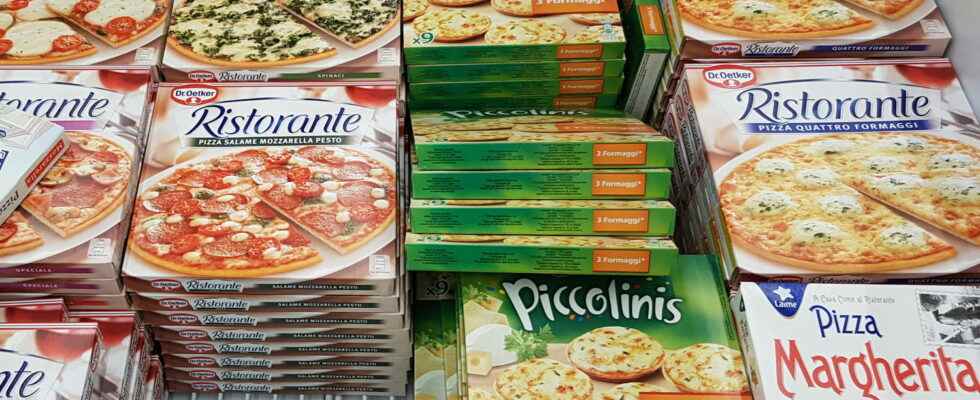BUITONI PIZZA. Buitoni pizzas from the “Bella Napoli” range are suspected of being contaminated with E. coli bacteria like the “Fraîch’Up” pizzas of the same brand a few weeks ago. A new complaint has been filed against Buitoni.
[Mis à jour le 5 mai 2022 à 12h12] Buitoni pizzas are again singled out. After “Fraîch’Up”, suspicions of contamination with E. coli bacteria target the “Bella Napoli” product range. A first complaint concerning the pizzas in the range was filed by a couple on Wednesday May 4 after the young woman and mother was contaminated according to infirmations from BFM TV. The story dates back to March 27 when the consumer tasted a slice of “Bella Napoli” pizza, two days after symptoms of contamination with E. coli bacteria appeared: painful stomach aches, vomiting and fever. Hospitalized, the young woman remained in hospital for six days and said she had “never experienced pain like that” according to AFP details. Medical examinations confirmed the presence of two bacteria: E.coli and Shigella.
Doctors were the first to suspect contamination with E.coli bacteria. “The doctor came to my room and asked me if I had eaten a pizza in the last few days, showing me all the pizzas from Buitoni”, relates the mother of the family. The young woman and her husband decided to sue the brand and filed a complaint against Buitoni and Nestlé, the owner of the frozen pizza brand, on Wednesday May 4. Their lawyer judges that “the precautionary principle is totally flouted in this case, by Nestlé, by the health authorities, and by the courts”. In addition to the complaint, this new case of E.coli was reported to regional health agencies and supermarkets, but the steps were not enough to remove the products from the Bella Napoli range from supermarket shelves.
Contaminated “Fraîch’Up” pizzas, scandal at Buitoni
Buitoni’s “Bella Napoli” range is not the first to be suspected of being contaminated with E.coli bacteria. At the end of March, the pizza brand was caught in the middle of a scandal when the consumption of products from the Fraîch’Up range led to contamination and caused violent symptoms in adults and children. Analyzes have confirmed “a link between several cases [de malades et e graves contaminations] and the consumption of frozen pizzas from the Fraîch’Up range of the Buitoni brand contaminated with Escherichia coli bacteria”, explained the General Directorate of Health in a statement. The highlighting of the correlation forced Buitoni to recall all its products from the Fraîch’Up range put on the shelves before March 18.
Among the most serious cases of contamination with the E.coli bacterium recorded in France, dozens of children fell ill, some of whom could have lifelong consequences and two died after several weeks of coma. In these two cases, the direct link with the consumption of Buitoni pizzas has not been confirmed. At the beginning of April, the Paris prosecutor’s office launched an investigation against the Buitoni brand and the Caudry factory in the North, responsible for the manufacture of the pizzas concerned, for “involuntary homicides”, “deception” and “endangering others. “.
Breaches of “food hygiene” reported in the Buitoni factory
The Buitoni factory in Caudry, located in the Nord department, is the only point where the brand’s pizzas are made. All products and therefore the “Fraîch’Up” and “Bella Napoli” ranges go through these production lines, but inspections that took place in mid-April after the scandal of pizzas contaminated with E.coli bacteria revealed “a level degraded control of food hygiene”. A prefectural decree highlighted “the presence of rodents and the absence of means of protection against the entry of pests and of effective pest control adapted to a food activity”, in addition to a “lack of maintenance and cleaning of manufacturing, storage and transit areas”. So many shortcomings which “constitute a significant source of microbiological, physical or chemical contamination of the foodstuffs handled in the establishment, which therefore present or are likely to present a danger to the health of consumers”, according to the decree of the prefecture. North.
